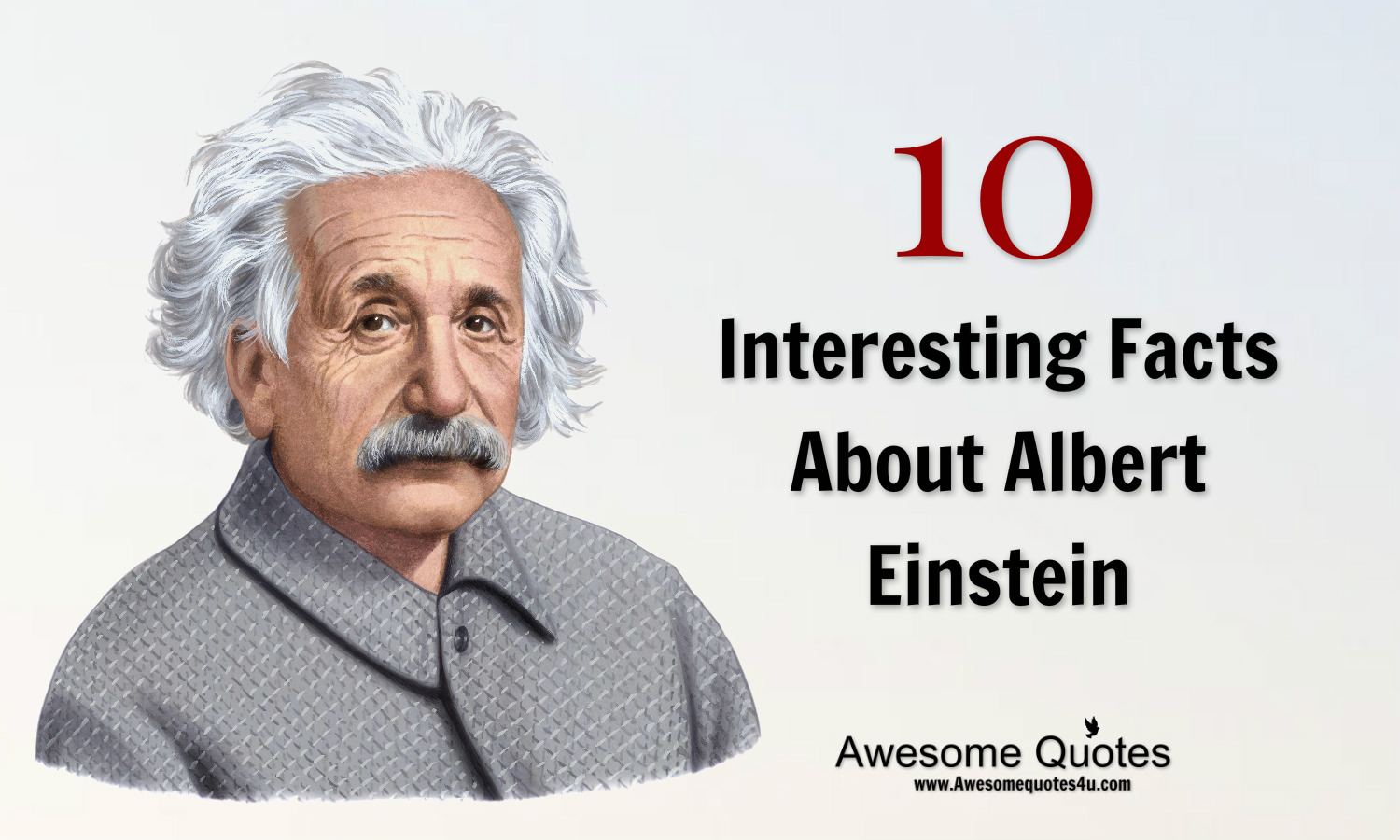Albert Einstein, a name synonymous with genius, revolutionized our understanding of physics and the universe. His theories reshaped modern science, yet his life was filled with intriguing facts that often go unnoticed. In this article, we will explore some fun facts about Albert Einstein that highlight not only his scientific contributions but also his unique personality and life experiences.
From his early years to his later achievements, Einstein's life was a blend of brilliance and eccentricity. He was not just a physicist; he was a musician, a philosopher, and an advocate for social causes. As we dive into this fascinating exploration, you'll discover lesser-known aspects of his life and work that showcase the man behind the theory of relativity.
Join us on this journey through time as we uncover fun facts about Albert Einstein that illustrate his legacy and the profound impact he had on both science and society. Whether you're a science enthusiast or simply curious about one of history's greatest minds, there's something in this article for everyone!
Table of Contents
- Biography of Albert Einstein
- Early Life
- Scientific Contributions
- Personal Life
- Hobbies and Interests
- Famous Quotes
- Cultural Impact
- Legacy and Recognition
Biography of Albert Einstein
Albert Einstein was born on March 14, 1879, in Ulm, Germany. He was the first child of Hermann Einstein and Pauline Koch. His family later moved to Munich, where his father and uncle founded a company that manufactured electrical equipment.
| Date of Birth | March 14, 1879 |
|---|---|
| Place of Birth | Ulm, Germany |
| Date of Death | April 18, 1955 |
| Place of Death | Princeton, New Jersey, USA |
| Occupation | Theoretical Physicist |
| Notable Work | Theory of Relativity |
| Awards | Nobel Prize in Physics (1921) |
Early Life
Einstein's early life was marked by a curiosity for science and mathematics. Despite facing challenges in school due to his rebellious nature, he excelled in subjects he was passionate about. Fun fact: Einstein didn't speak until he was about four years old, leading his parents to worry about his development.
Challenges in Education
Einstein struggled with the rigid educational system in Germany, which often stifled creativity. He became disenchanted with formal education, which led him to drop out of school at the age of 15. However, he continued to study independently, developing a profound understanding of mathematics and physics.
Scientific Contributions
Einstein's work laid the foundation for modern physics, with his theory of relativity being one of his most significant contributions. This theory revolutionized how we understand space, time, and gravity.
The Theory of Relativity
- Special Relativity (1905): Introduced the idea that the laws of physics are the same for all non-accelerating observers.
- General Relativity (1915): Proposed that gravity is the curvature of space-time caused by mass.
These theories not only transformed theoretical physics but also had practical applications, influencing everything from GPS technology to the understanding of black holes.
Personal Life
Einstein's personal life was as fascinating as his scientific achievements. He married Mileva Marić in 1903, and they had two sons and a daughter. Their marriage faced challenges, leading to their divorce in 1919.
Later Relationships
After his divorce, Einstein married his cousin Elsa Löwenthal. Their relationship was supportive, and Elsa played a significant role in managing his personal affairs.
Hobbies and Interests
Beyond physics, Einstein had a passion for music and played the violin. He believed that music complemented his scientific work and often turned to it for relaxation.
Philosophy and Social Causes
Einstein was also an advocate for civil rights and social justice. He spoke out against racism and was an active member of various humanitarian organizations.
Famous Quotes
Einstein's words continue to inspire and provoke thought. Here are some of his most memorable quotes:
- "Imagination is more important than knowledge."
- "Life is like riding a bicycle. To keep your balance, you must keep moving."
- "The important thing is not to stop questioning. Curiosity has its own reason for existing."
Cultural Impact
Einstein's influence transcends science; he became a cultural icon. His image and theories have been referenced in various forms of media, from films to literature, solidifying his status as a symbol of intelligence and creativity.
Legacy and Recognition
Einstein's legacy continues to resonate in the scientific community and beyond. He received numerous awards, including the Nobel Prize in Physics in 1921 for his explanation of the photoelectric effect.
His work laid the groundwork for future physicists, and his ideas continue to inspire new generations of scientists. Fun fact: His brain was preserved after his death, and studies on it have sought to understand the source of his genius.
Conclusion
In this exploration of fun facts about Albert Einstein, we have uncovered the multifaceted life of one of history's greatest minds. From his groundbreaking scientific contributions to his personal passions and advocacy for social justice, Einstein's legacy remains relevant today.
We invite you to share your thoughts on this article in the comments section below or explore more articles on our site to further your understanding of the world around you.
Closing Thoughts
Thank you for joining us on this journey through the life of Albert Einstein. We hope you found these fun facts enlightening and that they inspire you to delve deeper into the realms of science and human curiosity. Come back soon for more intriguing content!
You Might Also Like
Bruce Spence In Mad Max: The Iconic Role And His Journey Through Post-Apocalyptic CinemaMarlon David Jackson Jr: An In-Depth Look At The Life And Legacy Of The Jackson Family Member
Understanding Glenn Frey Cause Of Death: A Deep Dive Into The Life And Legacy Of The Eagles Co-Founder
Exploring The Timeless Legacy Of Audrey Katherine Hepburn: An Icon Of Cinema
Is Chuck Norris Still Alive? The Untold Truth About The Legend
Article Recommendations


